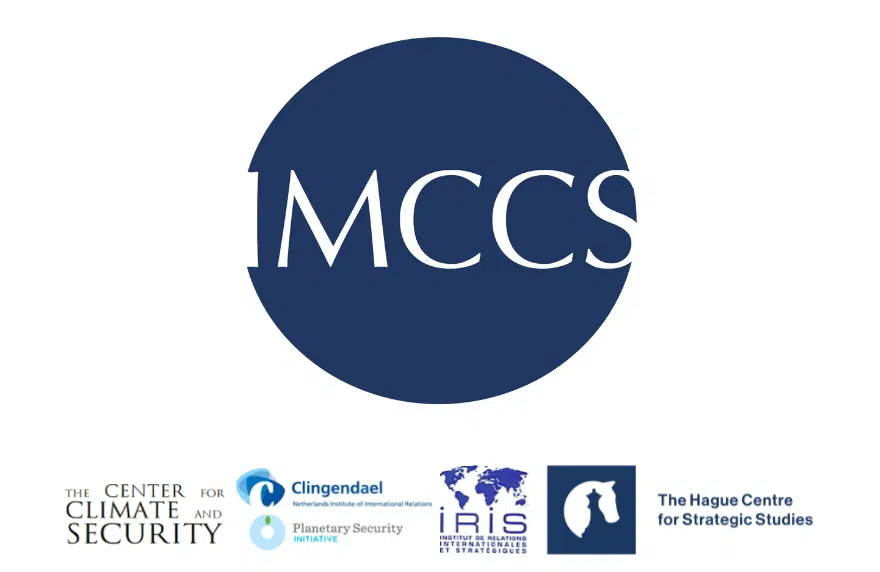The Expert Group of the International Military Council on Climate and Security (IMCCS) released its annual World Climate and Security Report today, “Military Innovation and the Climate Challenge”. HCSS has contributed a chapter on “The evolving character of war: Leveraging technological innovation in a changing operational environment”.
With climate impacts accelerating, militaries are increasingly considering the carbon footprint of their operations, infrastructure, and supply chains. Many countries already have initiatives to reduce their carbon footprint and improve the efficiency of their militaries. The new IMCCS report explores how military research and innovation might enable both emissions reduction and greater resilience of infrastructure and operations to climate impacts.
The report reveals a need for militaries to adopt a comprehensive approach to the climate challenge. This should include research and development (R&D) but also a wider range of policy and procurement changes. The climate crisis is not a challenge that can be solved by a single tool such as military R&D, but rather a broader set of partnerships, policies, and investments that make up a more complete sustainability toolbox.
New and emerging technologies are opening avenues for militaries to become more accurate, connected, lethal, and sustainable. At the same time, the operational environment is changing due to emerging geopolitical tensions in the Indo-Pacific and on the European continent. Climate change is impacting the demand for military operations, exacerbating resource scarcity, empowering non-state armed groups, and driving calls for militaries to spend more resources on humanitarian aid and disaster relief (HADR).
In this evolving strategic context, NATO and EU governments are taking action to increase their competitive edge and operational effectiveness. There is much focus on the benefits of emerging technologies such as (semi-)autonomous systems and information technology to military readiness, but the opportunities brought by low-carbon technologies are often overlooked.
Low-carbon technological innovation offers opportunities to reimagine the ways wars are fought. For instance, reducing the dependence on fossil fuels in military operations would have remarkable benefits for the resources needed to supply and support combat soldiers. Yet little research has been done to uncover the impact of “low-carbon warfare” on the future of military operations and how this interacts with other emerging technologies such as automation and AI.
To fill this gap, the chapter written HCSS strategic analysts Irina Patrahau and Laura Jasper takes the first steps toward an inclusive analysis of the future of warfare that integrates considerations of military decarbonization in the broader scope of technological, geopolitical, and security trends that affect military operations, including climate change. This can support the development of targeted approaches to the future of warfare and stimulate the development of relevant recommendations for NATO members to boost operational readiness in the coming years.
***
Source: IMCCS, July 10th, 2024
Authors: Irina Patrahau and Laura Jasper.
With contributions from: Richard Nugee, Laura Birkman, Davis Ellison, Tom Draaijer and Miriam Sainato.











